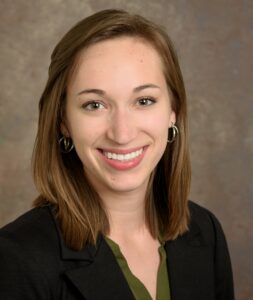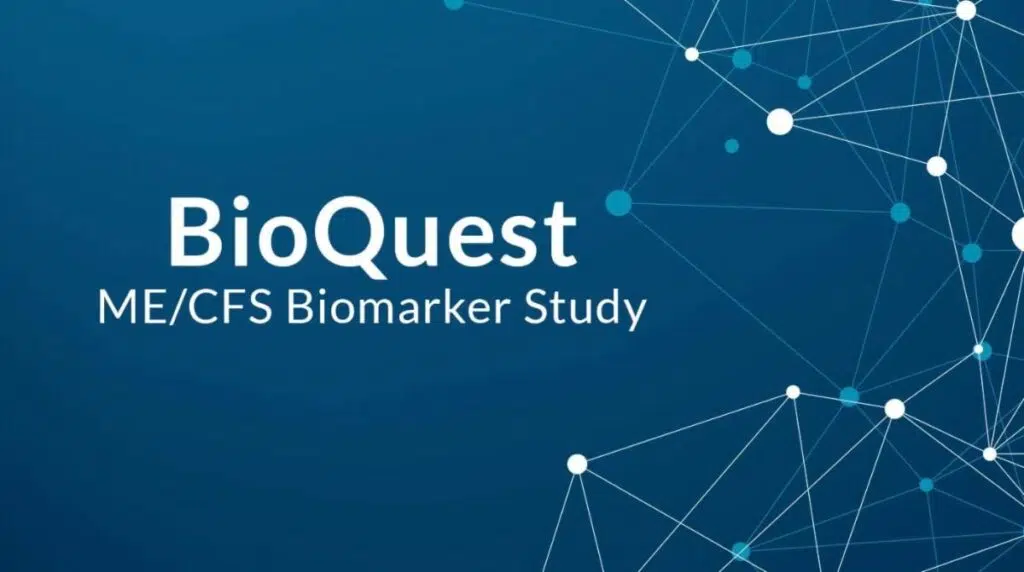
Back in December of 2024, we announced a new large-scale biomarker project for ME/CFS, which we’re calling BioQuest. I am thrilled to be able to share an update on BioQuest, which effectively moves this project into the “Recruitment, Data Collection” stage of the research process.

For this study, we will take previously collected samples and run tests on them rather than recruit new participants and collect new samples. So as we transition out of a significant design phase, we have a unique opportunity with BioQuest to get right down to testing samples and avoid months of recruiting. Part of that design phase included getting approval to access all the plasma samples we were hoping to incorporate in the study, which we have now received!
 We are excited to provide an update on our BioQuest project: we have received approval from the NIH’s Biospecimen Review Access Committee—part of the National Institute of Neurological Disorders and Stroke—to incorporate the plasma samples and their respective clinical data collected via the Chronic Fatigue Initiative in our study. This approval grants us access to samples from 200 people with ME/CFS and 200 matched healthy controls.
We are excited to provide an update on our BioQuest project: we have received approval from the NIH’s Biospecimen Review Access Committee—part of the National Institute of Neurological Disorders and Stroke—to incorporate the plasma samples and their respective clinical data collected via the Chronic Fatigue Initiative in our study. This approval grants us access to samples from 200 people with ME/CFS and 200 matched healthy controls.
By combining these with samples from our Collaborative Center at Uppsala, we now have samples from 400 people with ME/CFS, 400 healthy controls, and 50 each of disease controls, including multiple sclerosis, exertional malaise (burn out syndrome), clinical depression, and Long COVID. We expect to be able to start testing these samples by the end of 2025.
Biomarker discovery is a staged process. Typically, this process for finding an accurate biomarker requires a discovery phase, a verification stage, and a validation study all before it can be commercialized for clinical use. So far in ME/CFS, a number of studies have identified potential biomarkers, which need to be validated in a large-scale, independent study.
OMF’s BioQuest project builds off of a collection of smaller-scale studies that highlight the potential for identifying a unique biochemical signature for ME/CFS using proteomics, metabolomics, and cytokines. These studies have been able to identify differences between ME/CFS and healthy controls in plasma, which need further validation using repeatable methodologies and in a large enough study to break down into subgroups. Therefore, a high-powered study like BioQuest is needed to investigate further.
In addition to the smaller-scale studies, a few larger-scale studies have been conducted using the UK Biobank, including at OMF’s Melbourne ME/CFS Collaboration. These studies are critical for identifying preliminary markers and providing information about where to look for a robust biochemical signature. BioQuest will provide further evaluation of these signatures using a geographically diverse cohort with doctor-confirmed diagnoses.
Overall, the biomarker studies to date have provided crucial information for the development of the BioQuest project, which aims to fill the gaps in existing research. It is the largest study of its kind with doctor-confirmed diagnoses, disease controls, and a geographically diverse cohort.
The proteomics, metabolomics, and cytokine testing on these 1000 samples is the first phase of our overall biomarker project. The ultimate goal of BioQuest is to identify a biochemical signature for ME/CFS that can be conveniently evaluated through a blood test and will differentiate ME/CFS from other illnesses with similar clinical presentations.
Thanks to the generosity of our global OMF community, Phase 1 of BioQuest is ready to launch. With 1,000 samples now secured for testing, we are ready to raise funds for Phase 2— the opportunity for additional testing and the critical validation process to ensure BioQuest delivers the most rigorous and data-driven results possible.
Please join us today in support of this groundbreaking research for a brighter tomorrow.
What are the advantages of giving from your Donor Advised Fund (DAF)?
How do I make a donation through my DAF?
Just click on the DAF widget below. It is simple and convenient to find your fund among the over 900 funds in our system.
Still can’t find your fund?
Gifting of Stock
Broker: Schwab
DTC #: 0164
Account #: 47083887
Account Registered as:
Open Medicine Foundation
29302 Laro Drive
Agoura Hills, CA 91301
Please speak to your personal tax advisor and then email or call OMF at 650-242-8669 to notify us of your donation or with any questions.